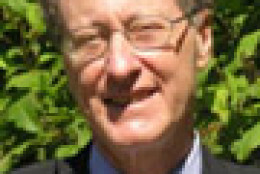Pay
-
A 1.3-percent pay raise, reforms to the Senior Executive Service and increased emphasis on employee feedback are just some of the initiatives proposed in President Barack Obama's 2016 budget.
February 02, 2015 -
NARFE Legislative Director Jessica Klement and Federal Times Senior Writer Andy Medici will predict what's ahead for federal workers and retirees in 2015. January 21, 2015
January 21, 2015 -
Rep. Gerry Connolly (D-Va.) introduced a bill this week that could have a significant impact on government employees. Instead of the usual, and sometimes forgotten, 1 percent pay increase, Connolly's bill proposes a 3.8 percent pay raise. The question now is will it ever pass? Soon after, federal employees began to speak out about the bill. Web Manager Julia Ziegler joined Tom Temin on the Federal Drive to share some of your comments.
January 16, 2015 -
A group of Democrats on Capitol Hill are proposing a 3.8 pay hike for federal employees. That's a good thing, right? Senior Correspondent Mike Causey says the answer is complicated.
January 16, 2015 -
With fewer SES awards being handed out, Carol Bonosaro, president of the Senior Executives Association, wonders whether executives are performing less well than they did in years past or if the standards simply have gotten too tough?
January 13, 2015 -
Companion bills introduced in the House and Senate would give federal employees a 3.8 percent pay raise next year. Federal employees received 1 percent pay raises in both 2014 and 2015, after three years of pay freezes.
January 13, 2015 -
This year, again, feds got a 1 percent raise. So that's 2 percent (slightly more with compounding) in five years. So did anybody notice? asks Senior Correspondent Mike Causey.
January 09, 2015 -
Colleen Kelley, president of the National Treasury Employees Union joins host Mike Causey to talk about proposed cuts at the Internal Revenue Service, and their impact on the agency. January 7, 2015
January 07, 2015 -
Carol Bonosaro, president of the Senior Executives Association, will give her thoughts on President Barack Obama's speech to members of the Senior Executives Service. December 31, 2014
December 31, 2014 -
Federal employees covered by the General Schedule and members of the military, among other feds, will get a 1 percent pay raise in January. Late Friday, President Barack Obama signed an executive order calling for the increases.
December 20, 2014 -
In the famous folk song, railroad worker Big Jim Goff is blown a mile into the air by a premature explosion. Come the next payday, he's a dollar short. The mean foreman informs him, he was docked for the time he was up in the sky. That scenario is not so far-fetched. The same issues come up in modern workplaces, federal and private sector. Employment attorney Heidi Burakiewicz, a partner with Mehri and Skalet, joined Tom Temin on the Federal Drive to discuss two cases — one in the federal sector and one in the private.
December 18, 2014 -
Carol Bonosaro, president of the Senior Executives Association, will give her thoughts on President Barack Obama's speech to members of the Senior Executives Service. December 17, 2014
December 17, 2014 -
Budget pressure is pushing the "pay for results" concept to a tipping point. That's what Steve Kelman sees, at least. He's professor of public management at the Harvard Kennedy School of Government, and former Administrator of the Office of Federal Procurement Policy. On In Depth with Francis Rose, he said the pay for results idea has been growing for a while, but now it's taking off.
December 17, 2014 -
The goal of S. 1691, or the 2014 Border Patrol Agent Pay Reform Act, is to address and streamline Administratively Uncontrollable Overtime (AUO), the extra pay agents receive when their work demands they remain on the job beyond scheduled hours.
December 12, 2014 -
When Congress resumes, Rep. Eleanor Holmes Norton is set to introduce a bill that directs federal agencies to give preferential points to federal government vendors based on their labor practices. Norton's is the latest in a series of bills and orders designed to improve working conditions for federal contracting employees.
October 30, 2014





